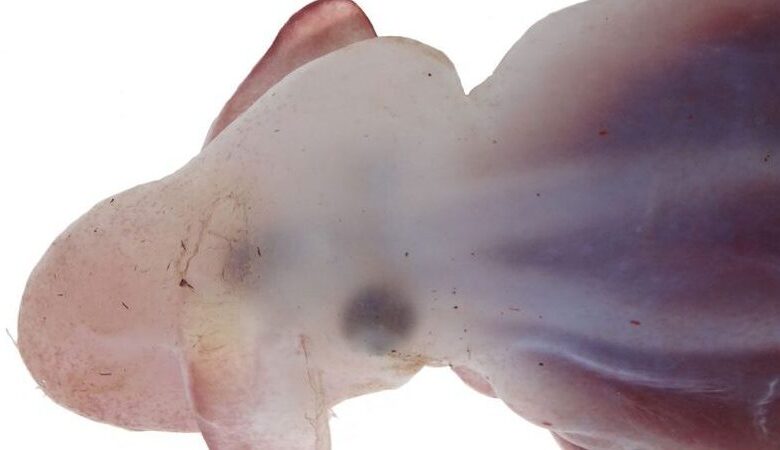
Traditionally, when taxonomists examine a potentially new species of octopus, they dissect them, an approach that is highly invasive and nearly destroys the specimen. Photo Credit: Alexander Ziegler
Animals GermanyResearchers Identify a New Species of Octopus Without Dissecting It!
A team of researchers in Bonn, Germany have identified a new species of Dumbo octopus using image scanning techniques – a non-invasive alternative to traditional dissection that is especially beneficial for such rare species as this one.
“The use of the 3-D imaging without dissection is a very useful concept,” says Michael Vecchione, a cephalopod specialist at the Smithsonian Institution, not involved with the study. “Even though the techniques have been around medically for a while, they’re just now finding their way into research on animals like invertebrates.”
The rare Dumbo octopus is difficult to study since it lives some 4,000 meters below the sea, and avoiding dissection paves the way for further research. Biologists used micro-computed tomography scanning (micro-CT) and magnetic resonance imaging (MRI) techniques to look at the organs, eyes, and mouth of the Dumbo octopus and identify it as a new species called Grimpoteuthis imperator – all without destroying the specimen, opening up opportunities for further discoveries in the animal world.



